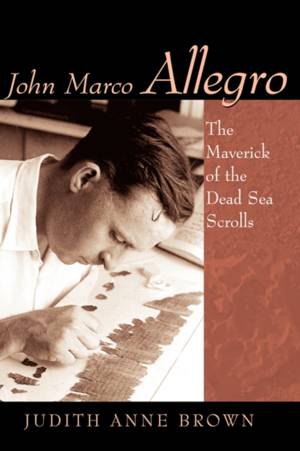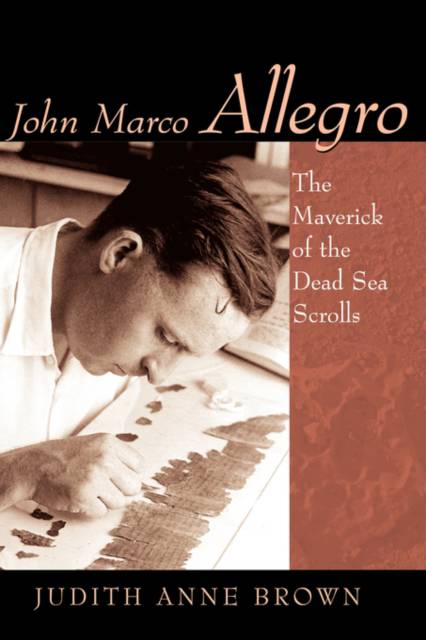
- Afhalen na 1 uur in een winkel met voorraad
- Gratis thuislevering in België
- Ruim aanbod met 7 miljoen producten
- Afhalen na 1 uur in een winkel met voorraad
- Gratis thuislevering in België
- Ruim aanbod met 7 miljoen producten
Omschrijving
As the first British member of the Scrolls editing team, Allegro shared the excitement, the insights, and the eyestrain of deciphering these invaluable ancient fragments. He made it possible for the Copper Scroll to be opened in Manchester and did much to focus worldwide attention on the Scrolls as a whole. But he made his name -- or gained his notoriety -- from questioning orthodox assumptions about how Christianity began.
Allegro's views soon set him apart from fellow Scrolls scholars and even from the church itself. He asked questions that many people found disturbing if not outrageous. He wondered, for example, about the interweaving of history, myth, faith, and tradition in the New Testament, and about the nature of the church's authority. Allegro went on challenging the establishment all his life, and he relished the arguments he provoked. For over thirty years he campaigned for open access to the Scrolls and for wider debate about their significance. To him it was a campaign for free speech and free opinion.
Judith Anne Brown's John Marco Allegro is a fascinating, probing, inside account of this man of ideas who was independent, irrepressible, and, above all, always original. Making extensive use of Allegro's letters, lecture notes, draft manuscripts, and other previously unpublished writings, Brown brings to life anew the extraordinary discoveries and debates that began in the caves by the Dead Sea over half a century ago.
Specificaties
Betrokkenen
- Auteur(s):
- Uitgeverij:
Inhoud
- Aantal bladzijden:
- 308
- Taal:
- Engels
- Reeks:
Eigenschappen
- Productcode (EAN):
- 9780802863331
- Verschijningsdatum:
- 24/08/2007
- Uitvoering:
- Paperback
- Formaat:
- Trade paperback (VS)
- Afmetingen:
- 156 mm x 234 mm
- Gewicht:
- 435 g

Alleen bij Standaard Boekhandel
Beoordelingen
We publiceren alleen reviews die voldoen aan de voorwaarden voor reviews. Bekijk onze voorwaarden voor reviews.












